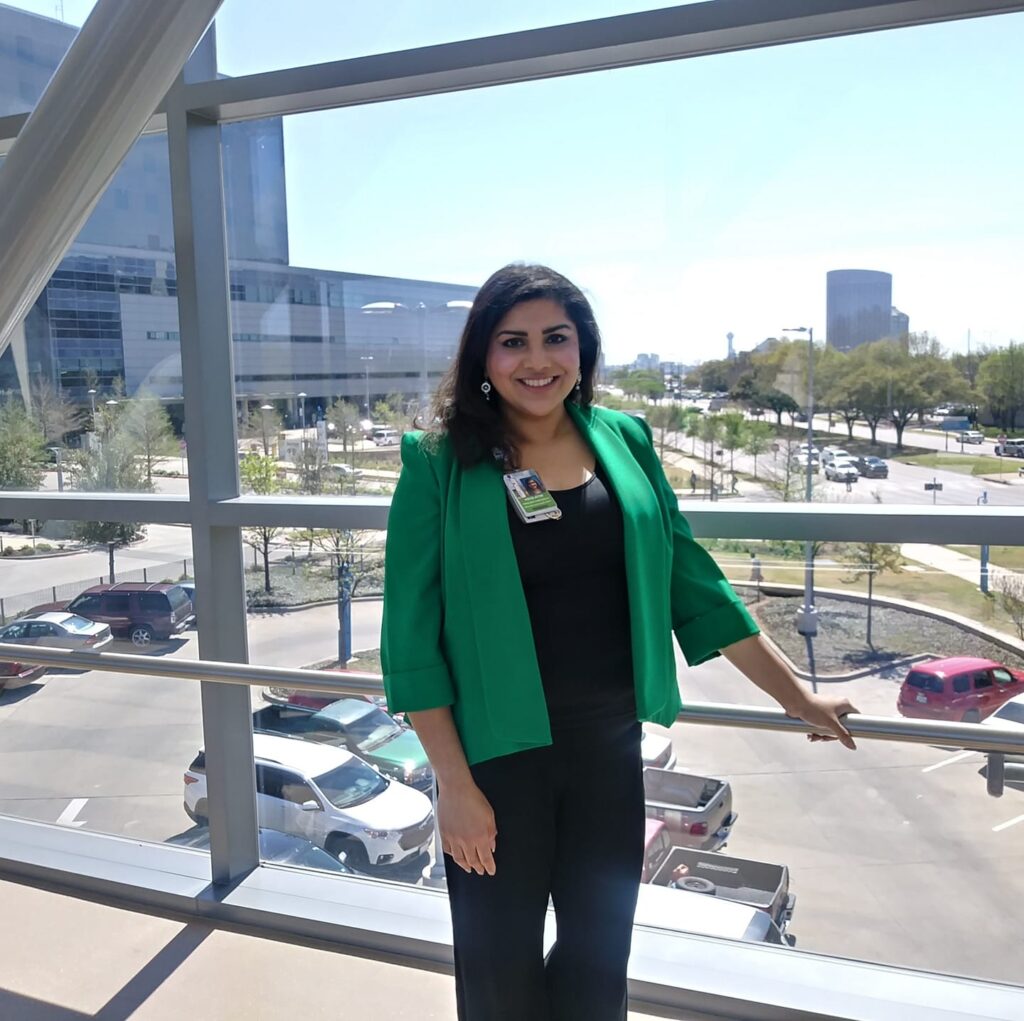Health care workers around the world are increasingly looking beyond medical conditions to address other factors that can affect people’s health – things like income level, education, housing status, food insecurity, and work conditions.
That’s where Vidya Ayyr’s work comes in. As the Director of Community Social Impact at Dallas’ Parkland Health, BrainCharge Founder and CEO, and 2017 Presidential Leadership Scholar, Ayyr is finding ways to identify and support what the World Health Organization terms the social determinants of health. Her team is collaborating with medical software provider Epic Systems Corp to capture these risks within every patient record at Parkland Health and beyond.
“A clinical history is just one aspect of overall health,” Ayyr said. “To provide a more patient-centered approach to care, we also need a record of an individual’s social health history.”
She began this initiative by looking at homelessness in Dallas as a social determinant of health. She proposed building a housing stability screening tool that would allow clinical providers to ask questions and track patients without homes or about to lose their homes and connect them to the appropriate case management services.
“The tool would not determine the quality of care that they receive but the continuum of care that they receive,” Ayyr said. “It’s not helpful to prescribe bed rest to someone who doesn’t have a bed to go home to.”
Becoming a Presidential Leadership Scholar provided her with additional skills, a network, and the confidence necessary to think even bigger than Texas – prompting her to consider a national approach to addressing social determinants.
A partnership among the presidential centers of George W. Bush, Bill Clinton, George H.W. Bush, and Lyndon B. Johnson, the six-month program sharpens participants’ leadership capabilities and introduces them to new ideas and ways of thinking. Scholars put their learning into action through a personal leadership project, intended to solve a problem or pressing issue in their community, country, or the world.
In Ayyr’s case, her personal leadership project began with her initial effort to support the unhoused in Dallas. But she didn’t stop there.
“As I started working on my project in the program, I quickly saw need to address more than just housing,” she said. “Safe and stable housing is a major factor of health. But as we all know, so is having access to food, transportation, child care, and there are also behavioral health risks to consider such as smoking.”
Ayyr decided to find a way to track all the social determinants of health for patients at Parkland – and figure out how to standardize the process as best practice in health care systems across the country.
Cue an Epic collaboration.
Epic is a medical software company that houses the health records of 78% of patients in the United States. The company had been researching evidence-based questions to build a social determinants of health framework within their platform. Ayyr was invited to serve on their Brain Trust.
“This presented a huge opportunity to help influence how social needs data could be collected at health systems beyond our own,” she said. “The tool is our collective response to screening for social risks.”
The social determinants of health “wheel”, as it appears in Epic’s software, has already been adopted by some major health care systems across the country.
Just five years after her PLS program experience, Ayyr’s effort is poised to benefit not just individual patients, but entire communities: The software will track trends in a community’s overall social health, providing health workers with the opportunity to localize care.
That’s something that’s always been a driver for Ayyr.
“Thinking more broadly on the impact of population health, I asked the team at Epic to build a dashboard that aggregates individual patient data to provide a snapshot of social needs within any health system,” Ayyr said. “This way, hospital administrators, funders, and policy makers could gather real-time data on the social risks of their community.”
Ayyr’s commitment to this work and to serving the Dallas community is unwavering. Like many leaders who go through the Presidential Leadership Scholars program, she cites it as one of her greatest motivators and resources when the work has proven difficult.
“It’s the idea that my success is our success,” she said. “The collective impact model that PLS promotes is unlike anything else I’ve been a part of. We support one another, uplift each other, and always amplify the good work that is being done by our peers. The PLS family has been a bigger blessing than I could even explain.”

